World braces for uncertainty of a second Trump presidency
With hot wars raging in the Middle East and Europe, a possible third simmering away in the Taiwan Strait and the global economy still in post-pandemic recovery, the world is now bracing for the unpredictable leadership of a second Trump presidency.
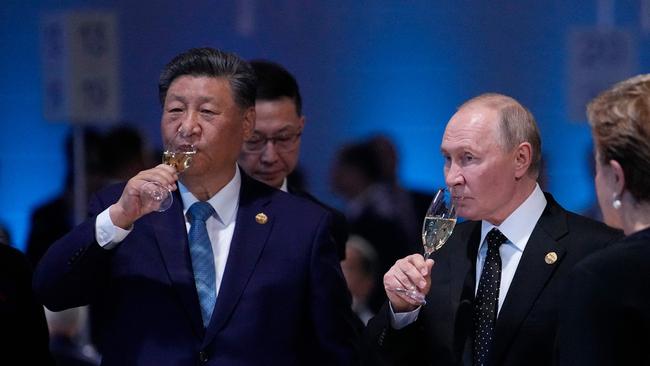
With hot wars raging in the Middle East and Europe, a possible third simmering away in the Taiwan Strait, a new cold war shifting alignments and the global economy still in post-pandemic recovery, the world is now bracing for the unpredictable leadership of a second US Trump presidency.
Donald Trump, the Republican maverick, will return to the White House at a time when the post-war global order is under greater challenge than ever amid deepening US-China rivalry and an emerging anti-Western alliance of autocracies.
Neither Trump nor his Democratic rival Kamala Harris showed much potential for global statesmanship during a bitterly fought campaign, and both would have required expert advisers to steer them through a globally tumultuous term, says Paul Monk, a long-time international relations commentator and former senior Australian intelligence analyst.
But with Trump securing a remarkable election victory, a big concern is that he “doesn’t listen to people”.
“The American electorate has chosen a Jacksonian leader whose proclivities will likely trigger significant shifts in the international order,” says Monk, referring to America’s populist seventh ‘president-in-the rough’ Andrew Jackson. “The key question is whether Trump will stand up for any democratic state, starting with Ukraine and, crucially for the Indo-Pacific, Taiwan.”
Taiwan
Despite relative US political bipartisanship on the need to defend Taiwan’s independence, Taipei is preparing itself for the unknowns of a new Trump administration.
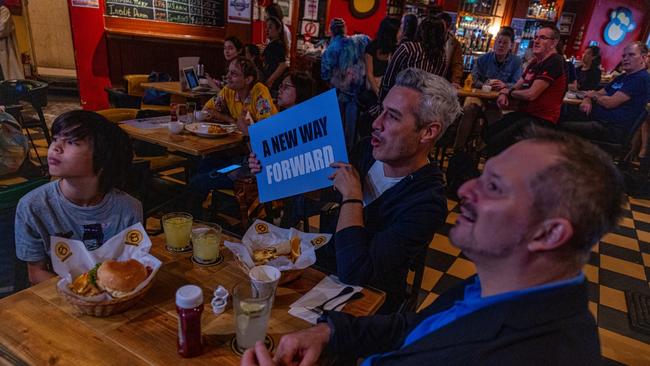
Trump’s running mate and next US vice-president JD Vance, national security adviser Elbridge Colby and former secretary of state Mike Pompeo – a top candidate for defence secretary – are all fierce advocates for defending Taipei.
But Trump has called out Taiwan for “stealing” America’s semi-conductor sector and expressed frustration that Taipei is not paying the US to fund its defence.
Monk warns Beijing will look to divide America’s allies in Asia and demoralise a Taiwan uncertain of US security guarantees.
Greg Poling, who heads the Southeast Asia program and Asia Maritime Transparency Initiative at the US Centre for Strategic and International Studies, says those internal Republican differences are manageable so long as “there is no crisis and (Trump’s) China hawks run the show”.
“But if the red phone rings, Trump is the one answering and no one knows what he will do.”
Ukraine/Europe
Ukraine is a clear loser under a second Trump administration, given the former president’s stated desire to quickly broker a peace deal that Kyiv fears will favour its aggressor, Russia.
Western European leaders also fear a Trump presidency more than most given his antipathy to NATO, the certainty that he will pull back US military support for Ukraine and make Europe pay more, and concern over how a pro-Russia peace deal could reverberate across the continent.
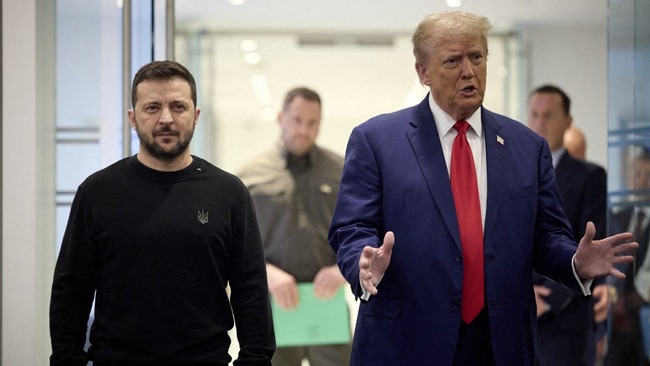
Europe would be hugely exposed on trade, too, should Trump make good his threat to impose a 10 to 20 per cent tariff on all imports into the US.
“Tariffs will seriously dampen the EU’s economic growth,” Zach Meyers, from the Centre for European Reform, said this week, though if it could secure tariff exemptions that would significantly boost EU import competitiveness.
But Europe would also face pressure under Harris to decouple from China and make more goods in the US.
Even on Ukraine where the two candidate’s policies radically diverged, Trump will be constrained from any deal with Vladimir Putin that exposes him to accusations of appeasement given widespread American hostility towards the Russian leader.
Harris had vowed to stand by Ukraine, but Putin is counting on US commitment waning no matter what the election outcome.
Trade/immigration
Trump’s more extreme positions on trade and immigration forced the Democratic Party to also take tougher stands.
Trump has promised to deport millions of undocumented migrants from the US – but Vice-President Harris too flagged strict measures on asylum seekers, signalling inevitable tensions ahead with Mexico and other Latin American neighbours.
Neither Trump nor Harris were offering a pull-back from the deepening great power competition with China that is deepening global divisions, though what shape that takes under a second Trump administration makes regional allies very nervous.
America First trade protection measures that began under Trump’s first presidency could get even more punitive this time around with Trump threatening to impose tariffs of up to 20 per cent impost on all imports.
China
Beijing was under no illusion it faced a difficult, more competitive US relationship no matter who next controlled the White House.
Harris talked more diplomatically of “de-risking” the US economy from China but also vowed to ensure “America, not China, wins the competition for the 21st century”.
Trump, meanwhile, has threatened to slap 60 per cent tariffs on all Chinese imports, potentially diverting a flood of cheap Chinese imports into alternative markets such as Europe and Southeast Asia that could hurt local industry.
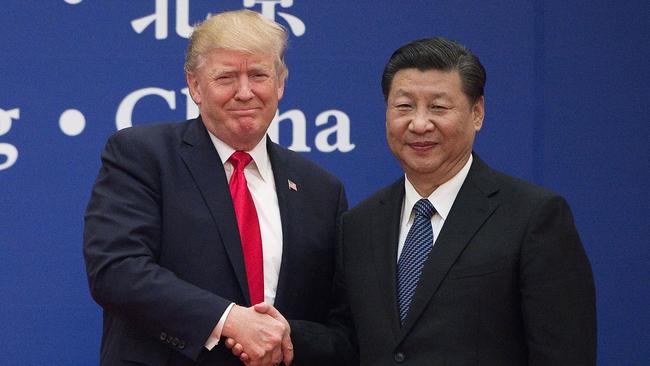
That won’t trouble Trump, though he could be swayed by big business Republicans with China interests – such as Elon Musk – to take a softer line.
China is hugely dependent on exports to fuel its economy and fears Trump’s threatened blanket tariff, but felt increasingly hemmed in by Biden’s latticework of partnerships in the region that a Trump administration may be less attentive to.
Beijing also recognises the potential benefits from a second chaotic Trump presidency that undermines America’s regional alliances and partnerships with South Korea, Japan, India, The Philippines and Taiwan.
Indo-Pacific
Japan and South Korea are particularly nervous about a new Trump term given the pressure both faced during his first presidency to pay more for the US security guarantee and troops on their soil. Both fear he could strike a deal with Beijing that throws them under the bus.
Seoul heavily depends on its US ally to defend against threats from North Korea. Pyongyang recently deployed troops to support Russia’s war on Ukraine, raising fears it could gain valuable warfare experience and Russian military technology.
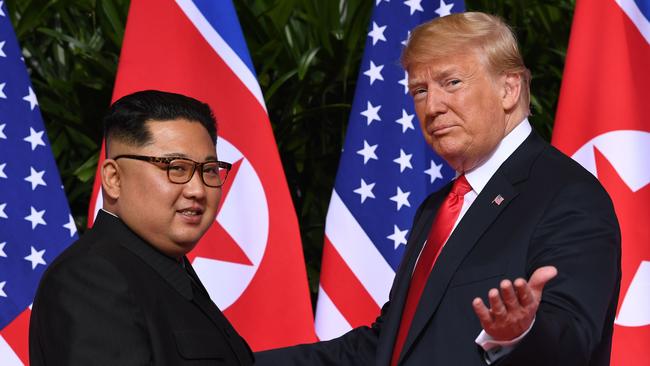
So concerned was South Korea about a post-election change in US policy, President Yoon Suk Yeol pushed for an early renegotiation of its cost share for US troops to avoid having to do so under Trump. And this time Quad member Japan has no Trump whisperer as it did in late prime minister Shinzo Abe to smooth the waters.
Says Poling: “Abe didn’t just save the US-Japan alliance but also The Philippines-US alliance by getting (former president Rodrigo) Duterte to walk back threats to cancel the Mutual Defence Treaty”.
Australia, too, managed the first Trump presidency well and is counting on a degree of Trump-proofing through its Quad membership and defence spend in the event of his re-election, though America’s already tenuous-looking commitment under AUKUS to supply interim nuclear-powered submarines looks less certain under Trump 2.0.
Fellow Quad nation India sees pluses and minuses in both candidates, says Observer Research Foundation America director Dhruva Jaishankar, though he expects little change in the relationship, or Washington’s approach to the Quad.
“In Trump, the concern is around predictability and how his trade and immigration policies might affect India,” he says.
While Harris is seen as a “safer pair of hands” there were also “questions about her approach to China and international affairs”.
“How much will she prioritise a human rights, democracy agenda over a strategic agenda?”
A hard US protectionist line could force manufacturers to again move outside of China, benefiting India along with Mexico and Vietnam, though there is also a risk those countries could face tariffs for acting as conduits for Chinese goods.
Southeast Asia
For a region so firmly in the crosshairs of US-China rivalry, Southeast Asia is surprisingly relaxed about a Trump return.
Most would prefer the predictability of a Harris presidency, though many regional governments feel they have less to lose than the rest of the world from Trump given the US has long under-delivered on trade, and proven less reliable in recent times as a security guarantor.
Filipinos and Vietnamese – two peoples who bear the brunt of Beijing’s South China Sea aggression – are Trump’s biggest regional supporters, according to recent polls, even though both Harris and Trump vowed to uphold freedom of navigation in the South China Sea and America’s mutual defence treaty obligations to Manila should China’s aggression lead to conflict.
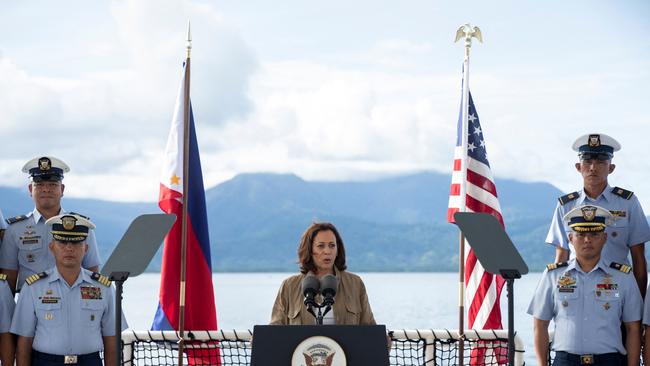
But there again, warns Poling, “the wild card is if the situation does reach crisis point because I don’t think anyone could say they know what Trump would do”.
Any reintroduction of Trump’s previous Muslim ban would be unpopular in Muslim-majority Indonesia, Malaysia and Brunei which are also deeply upset over the Gaza war.
Gaza
So challenging has broader US diplomacy become since Israel’s wars in Gaza and Lebanon, a recent poll showed Putin and Xi Jinping are now more popular and trusted across the Middle East than Biden. That is unlikely to improve under Trump, though his aversion to participating in foreign conflicts means he may be unpredictable on this too.
The conflicts in Gaza, Lebanon and Ukraine are realigning the world more rapidly than at any time in the recent past.
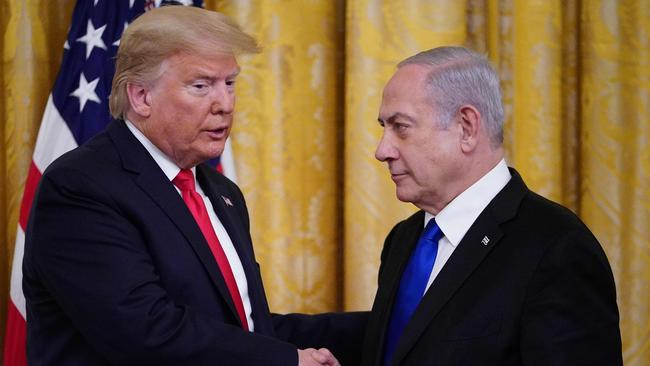
Consider the surprising 36-nation guest list at last month’s Russia-hosted conference of emerging economies known as BRICS. Founding members Brazil, Russia, India and China were there as were more recent recruits South Africa, Saudi Arabia, UAE, Iran and dozens of prospective new members including Indonesia and Malaysia – all lending legitimacy to Putin’s rogue regime and weight to Xi’s aims to reshape the global order in their favour.




To join the conversation, please log in. Don't have an account? Register
Join the conversation, you are commenting as Logout